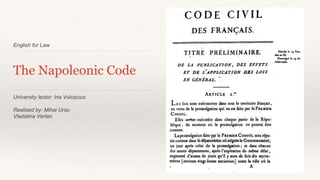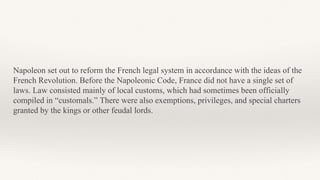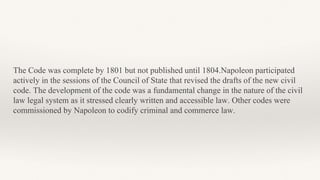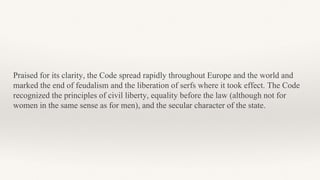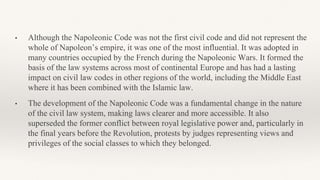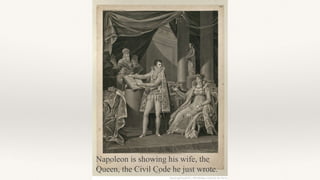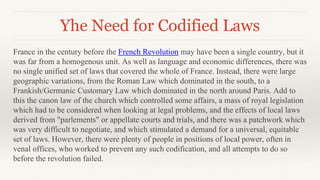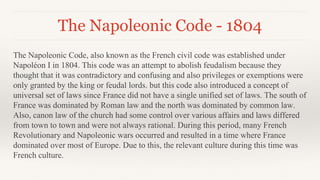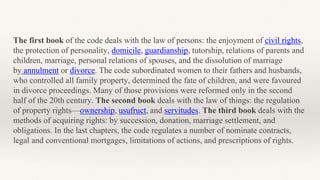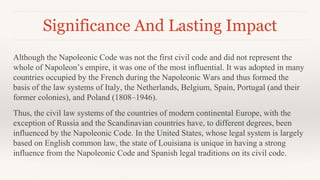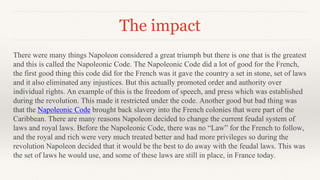The Napoleonic Code was one of Napoleon's greatest achievements. It established a single set of laws for France to replace the previous patchwork of local customs, privileges, and exemptions. The Code clarified and standardized French law, spreading influence across much of Europe as French rule expanded under Napoleon. It emphasized equality before the law while also restricting some individual rights. The Code remains influential in the legal systems of many European and Latin American countries today.
